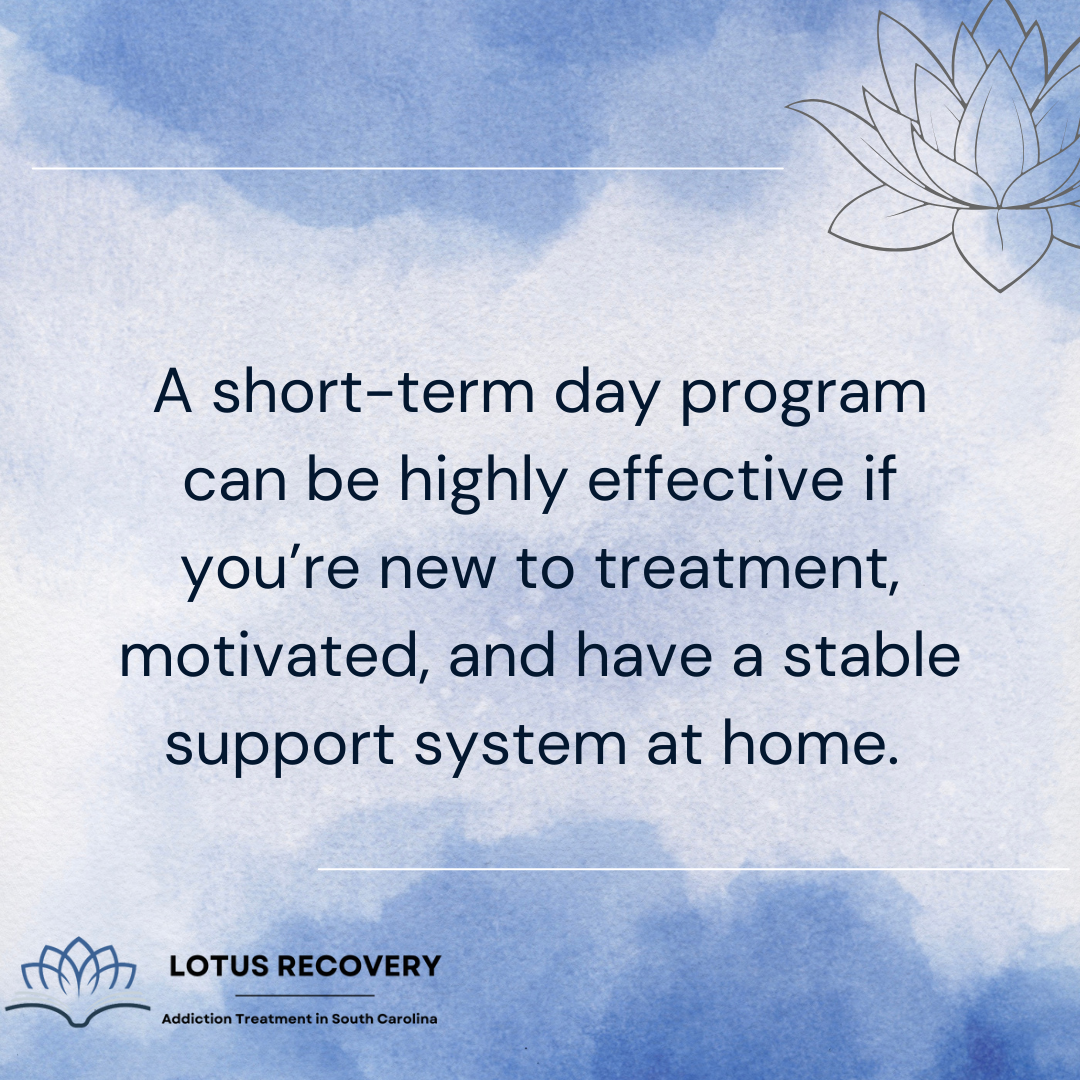
Discover the benefits of a structured 30 day program for recovery and how such programs provide support. Learn how to find 30 day rehab programs near you.
Healing, as they say, takes time. But what if you don’t have much time to step away from your responsibilities, yet still need real change? This is where a 30 day program for rehab can help you.
This approach to recovery gives you a focused, time-defined path to stabilize and build momentum in early sobriety. With daily structure, consistent support, and accessible care, it creates a solid foundation to continue your recovery journey.
In this blog, you’ll learn the core benefits of this program and how to find the right facility through searches like “30 day rehab programs near me.”

A 30 day program rehab is a structured treatment plan designed to deliver intensive care within a set, time-limited framework. These programs offer the focus and consistency of daily treatment while remaining short enough to fit into busy lives.
There are different formats available, including 30 day accelerated programs, which are inpatient and provide full-time residential care, and 30 day commuters programs, which allow you to live at home while attending daily treatment sessions.
Typical features of a 30-day program include:

A structured 30 day program offers concentrated support in a manageable timeframe, helping you build momentum without stepping away from life for months. Here are the program’s main benefits.
Committing to this program gives you an achievable starting point when long-term recovery feels overwhelming. This focused timeline helps you build early wins and stay motivated without the pressure of an open-ended commitment.
Structured routines are central to this program, giving you a consistent rhythm of therapy, self-care, and accountability. That structure helps stabilize your daily life, making it easier to transition into longer-term support when the initial program ends.
A 30 day program provides immediate access to professional medical care, especially for detox and withdrawal management during the early, vulnerable stages of recovery. Most 30 day rehab programs also include individual therapy, group counseling, and ongoing emotional support to address the mental side of addiction.
Having these resources available each day creates a safe environment where you can focus fully on healing while building skills to manage cravings, stress, and emotional triggers beyond the program.
Many people search for “30 day rehab programs near me” because the shorter commitment makes treatment more realistic. Thirty days is easier to fit into your life than 60- or 90-day programs, allowing you to get the care you need without pausing your responsibilities for months.
This flexibility supports better work-life balance, letting you maintain family, work, or school connections while still receiving consistent treatment. It makes recovery more approachable without reducing the quality of care.
Compared to longer residential care, this program can be significantly more affordable while still providing comprehensive treatment. Many facilities accept insurance, which can reduce out-of-pocket expenses and make short-term care even more accessible.
Because it’s a defined commitment, you can plan for the costs upfront and avoid the financial strain of open-ended stays. This affordability allows more people to take the first step toward recovery without the added stress of overwhelming financial pressure.
This type of program follows a carefully planned schedule that typically includes group therapy, individual counseling, educational workshops, and wellness activities. Such a level of structure helps replace chaotic or unproductive routines with healthy, repeatable habits that support long-term sobriety.
Having a clear daily framework minimizes idle time, which can be a trigger for relapse, while providing steady guidance and accountability. Over time, this rhythm becomes a foundation you can carry into life after the program ends.
A 30 day program can be the right fit if you need meaningful support but aren’t able to step away from life for months at a time. It offers a focused reset that’s intensive yet manageable, making it ideal for:

As stated, 30 day rehab programs offer a concentrated, time-limited approach. On the other hand, 60- and 90-day programs provide extended care and deeper therapeutic work.
A 30-day stay focuses on stabilization, helping you complete detox, build daily structure, and learn relapse-prevention skills. Meanwhile, longer programs have more time to address complex trauma, co-occurring mental health disorders, and long-standing behavioral patterns.
A short-term day program can be highly effective if you’re new to treatment, motivated, and have a stable support system at home. However, if you’ve experienced multiple relapses, severe withdrawal symptoms, or layered mental health challenges, a longer stay may give you the additional time and consistency needed to rebuild your foundation.
Many people use 30-day programs as a springboard into ongoing care.
Once the initial program ends, you can step down into outpatient therapy, support groups, or structured aftercare programs that help you maintain progress while reintegrating into everyday life. This continuity ensures you don’t lose momentum as the intensity of treatment decreases.
When searching for 30 day rehab programs near you, knowing what to look for can save time and help you make a confident decision. Focusing on quality, safety, and long-term support ensures you choose a program that truly fits your needs.
To effectively narrow down the list of quality programs in your area, use trusted directories, healthcare provider referrals, and local mental health organizations. Then, take time to compare their services and treatment approaches.
Ask which evidence-based therapies they offer, such as individual counseling, group therapy, or behavioral programs. Keep in mind that a variety of approaches increases the chance of lasting recovery.
Additionally, confirm whether licensed medical staff are on-site to manage detox and withdrawal safely. This is especially important if you have physical health concerns.
Also, find out if the program offers follow-up care like outpatient therapy, alumni groups, or relapse prevention planning. Ongoing support helps you maintain progress after the program ends.
Then, look for state licensing, national accreditation, and positive client testimonials. These indicators help ensure the program meets high standards of care and accountability.
A 30 day program typically includes medical detox support, individual and group therapy, educational workshops, and relapse prevention planning. These elements work together to help you stabilize and build a strong foundation for recovery.
Yes, especially if you’re seeking a focused reset. While some may benefit from longer care, 30 days can provide the structure and momentum needed to begin lasting change.
Consider your history, current stability, and support system. A 30-day program is ideal for those needing an intensive start, while longer treatment may be better if you’ve had multiple relapses or co-occurring mental health concerns.
Many programs accept insurance or offer payment plans to make treatment more accessible. Comparing coverage options and asking about financial assistance can help you find quality care within your budget.

Starting recovery doesn’t have to mean putting your entire life on hold. A structured 30 day program can give you the focused care, stability, and support you need to take meaningful steps forward — one day at a time.
Ready to begin? Reach out to our team at Lotus Recovery. We’ll help you explore your options and find a day program that fits your needs, your schedule, and your goals for lasting change.

Reviewer
Henna is a content strategist with over 5 years of experience in behavioral health marketing. She specializes in creating informed, compassionate content for addiction treatment centers, using her deep understanding of the industry to educate, engage, and support individuals seeking recovery.